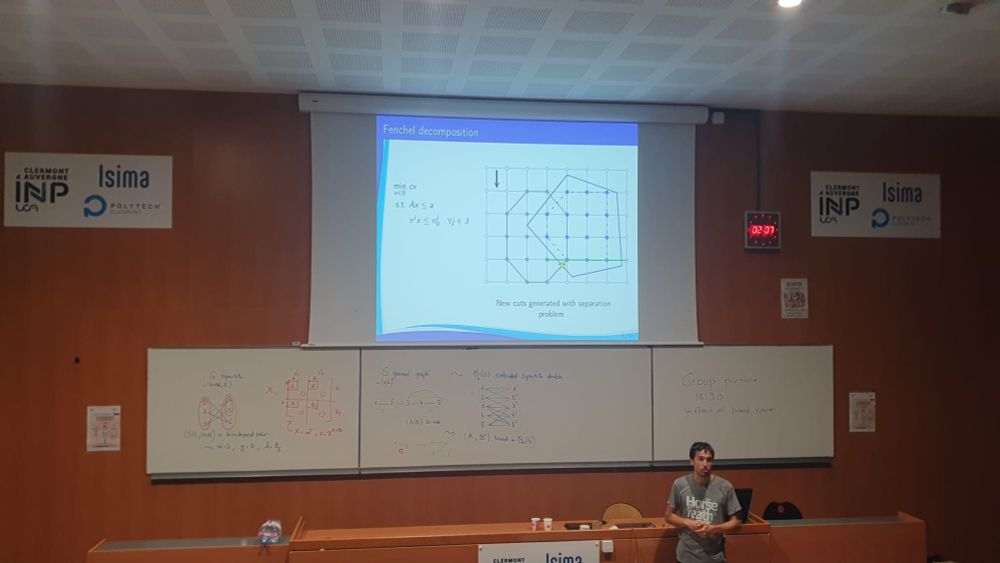https://marouane-f.github.io

Huge thanks to @sophie.huiberts.me , @matbesancon.bsky.social, the rest of the MIP committee and the local team for making this first edition a real success!



Huge thanks to @sophie.huiberts.me , @matbesancon.bsky.social, the rest of the MIP committee and the local team for making this first edition a real success!














#EuroMIP25 #orms

#EuroMIP25 #orms









#EuroMIP25 #orms



#EuroMIP25 #orms
She then wraps up by outlining future directions regarding convergence and other applications, while also emphasizing the role of ethical OR, tying back to Nadia Brauner’s opening talk.


She then wraps up by outlining future directions regarding convergence and other applications, while also emphasizing the role of ethical OR, tying back to Nadia Brauner’s opening talk.




Sophie casts the deterministic supply–demand problem as a hidden bilevel model via strong duality.



Sophie casts the deterministic supply–demand problem as a hidden bilevel model via strong duality.





#EuroMIP25 #orms


#EuroMIP25 #orms







#EuroMIP25 #orms


#EuroMIP25 #orms

